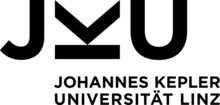ESQ PostDoc
Sebastian ERNE
Universality far from equilibrium
The questions if and how quantum many-body systems relax is a central open problem touching onto many parts of physics ranging from the emergence of classical statistical mechanics from the microscopic unitary evolution of quantum mechanics to the dynamics of the early universe. Understanding their collective behavior, efficiently described through the renormalization program of Quantum Field Theory, lies at the heart of many phenomena observed in nature. In this project we study universal aspects during the non-equilibrium evolution of quantum many-body systems. The combined theoretical and experimental investigation aims to extend the possibilities of utilizing cold atom systems as analog simulators of fundamental physics.
Particular interest is given to the emergence and breakdown of effective field theory descriptions for many-body systems in and out of equilibrium, self-similar scaling evolutions associated with the approach to non-thermal fixed points, as well as their connection to universal aspects of equilibrium critical phenomena. This offers a conceptually new access to time evolution based on a comprehensive classification of systems according to their universal properties far from equilibrium. This can be the basis for a new type of non-equilibrium quantum simulation relevant for a large variety of systems, including the early Universe after inflation, quark-gluon matter generated in heavy-ion collisions, and cold quantum gases.
After his ESQ Fellowship Sebastian Erne stayed at TU Wien, Atominstitut.
Navigation
Contact
ESQ Office
Austrian Academy of Sciences (ÖAW)
Atena Zalbeik-Dormayer
Boltzmanngasse 5
1090 Vienna
office(at)esq-quantum.at






